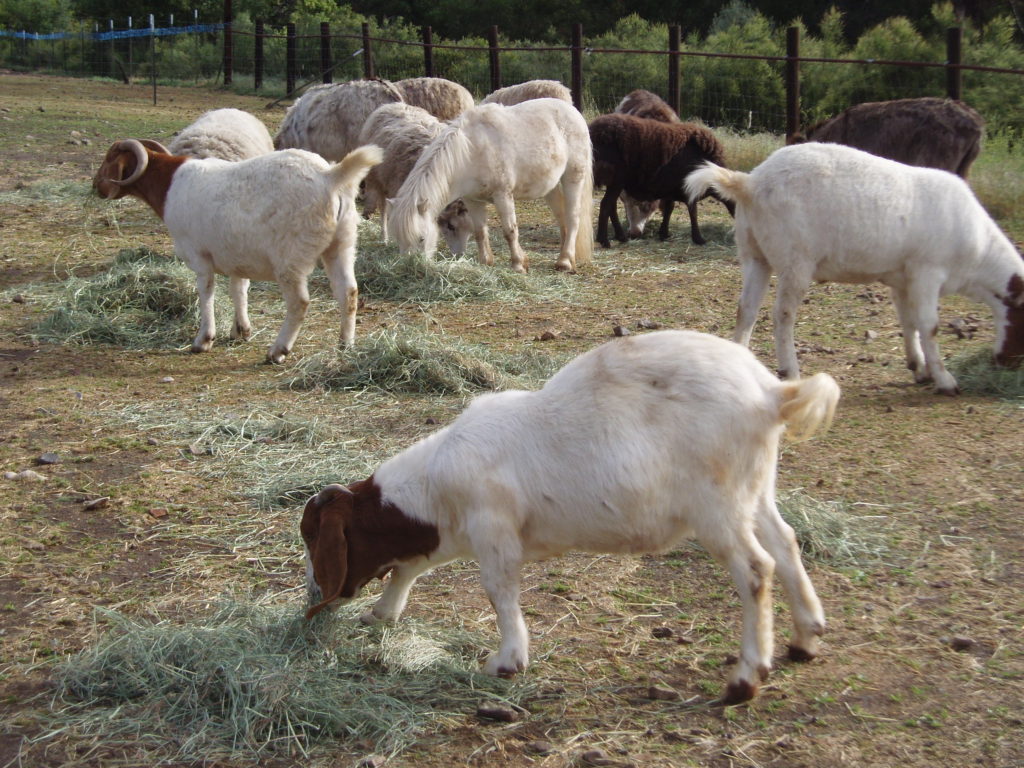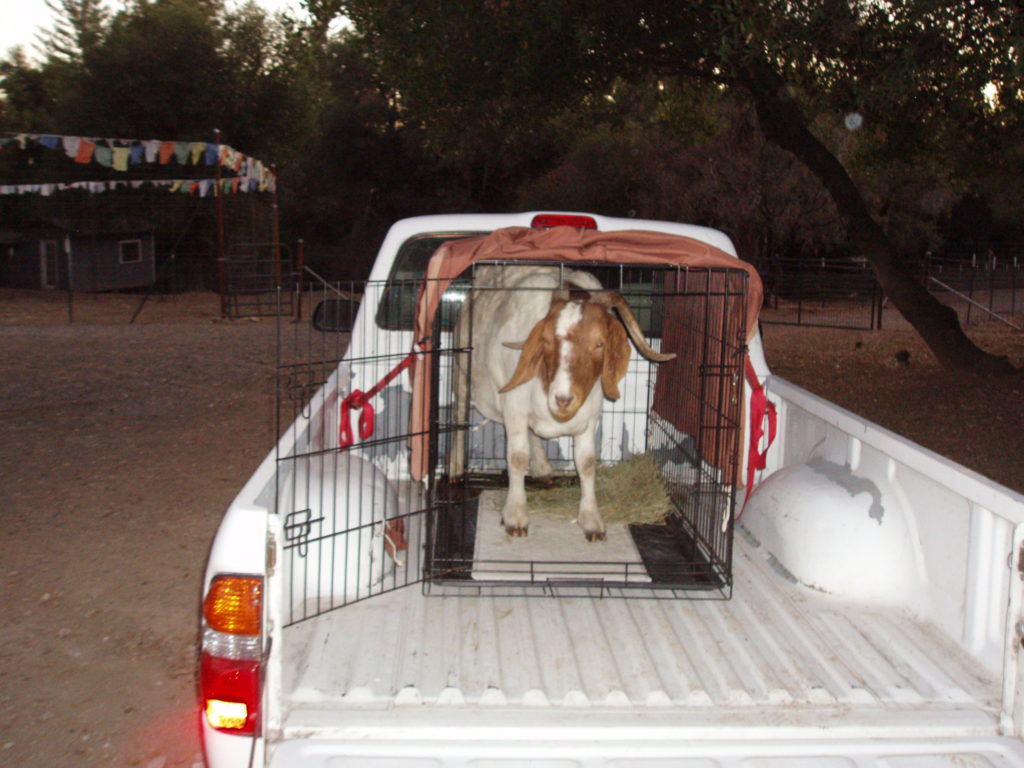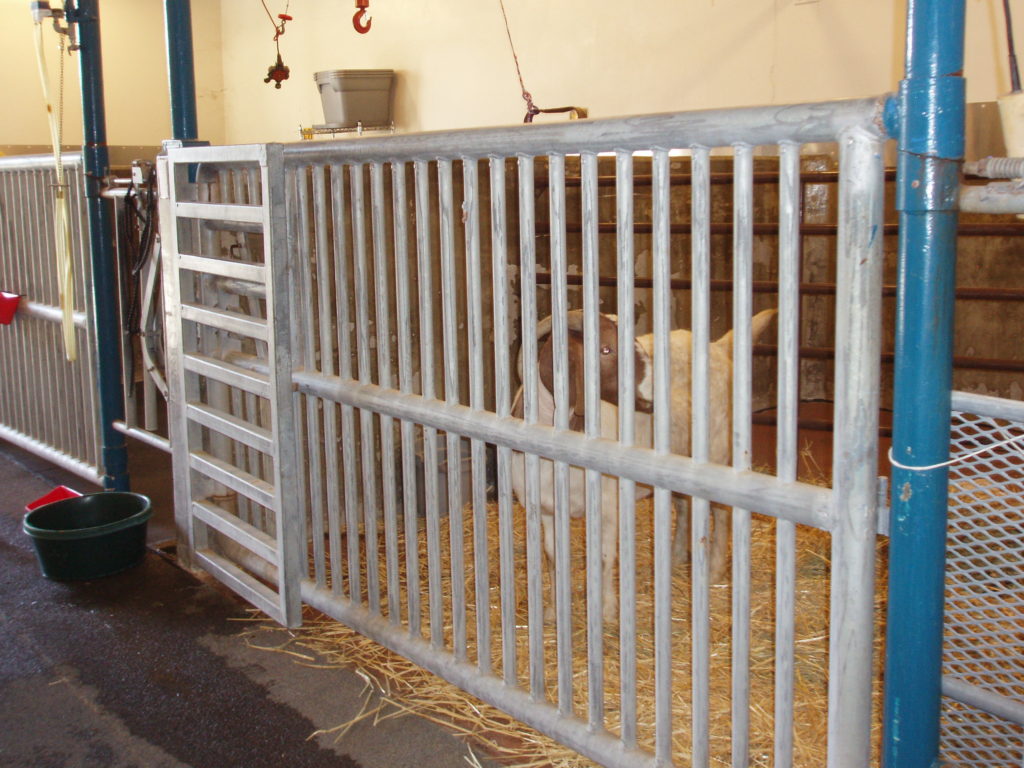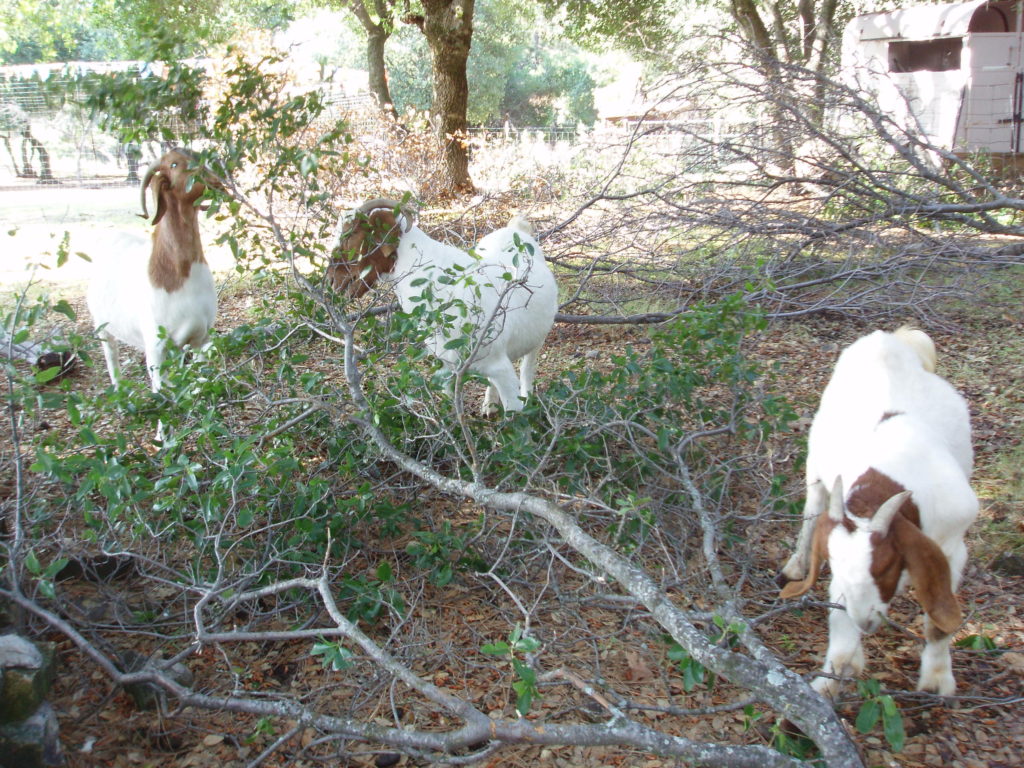When I went out to feed the animals on the morning of Monday, October 14, I saw at once that Joyful the goat wasn’t feeling well. He didn’t come to the gate of the barn area where the animals spend the night, like he usually does, but hung back under the oak tree. Then he slowly made his way to the gate. When I brought him some hay, he listlessly took a few nibbles, then just stood there—more unusual behavior.

Thinking he might need worming (goats are particularly susceptible to intestinal worms), I went and got the worming paste, squirted it in his mouth, and went inside for my own breakfast while I waited for a change in Joyful’s state. When I opened the front door to go check on him, he was standing right there, waiting for me, as if to tell me he needed help. Then he showed me that he was straining to urinate, with no effect. Uh oh.
I knew about the problem of urinary crystals among wethers (male goats who have been neutered) and that it can kill them. I called my local mobile vet who said it could not be handled in the field. My local vet hospital had no ranch vet in that day. I called the UC Davis Veterinary Hospital, where my goat Caerwyn had gotten such good care, and they urged me to come in right away. It takes a little over two hours to get there from where I live, so I hurriedly put the extra-large dog crate in the truck bed and backed the truck up to a rock wall to make it easy for Joyful to get in. I called a wonderful neighbor to help me load Joyful, but as it turned out, Joyful virtually walked right in to the crate. The animals know when they need help and trust me to provide it.

I prayed all the way to the hospital that Joyful would be all right. At UC Davis, a vet and a flurry of vet students (it is a teaching hospital) began to administer to Joyful, who stood still (he was down from pain and discomfort) while they checked his vitals and did an ultrasound. Then he was off to X rays.
Joyful ended up having bladder surgery the next day to remove bladder stones, which are masses of urinary crystals. As with human kidney stones, they have to pass through the urethra—very painful. The danger is that they can become lodged there. The vet reported that his surgery revealed an “angry” bladder, inflamed and irritated by the stones. Without the surgery, Joyful would certainly have died.

Thankfully, Joyful rebounded well after the surgery, to the vet’s surprise. With a bladder that angry, she had expected the recovery to be longer. She didn’t think he would be able to come home that week, but he did “awesome,” as she said, so she discharged him on Friday, October 18.
At home, I had to keep him separate from the other animals because he had a tube sticking out of his side (a Foley catheter) and the vet said other goats might chew on the tube. There was a lot to do to get Joyful through this health crisis—pills, antibiotic injections, and then a series of “challenges,” which involved blocking the catheter for increasing hours and monitoring Joyful to see if he was urinating through his urethra. I was hugely relieved when he successfully passed each challenge.
Then it was back to UC Davis to have the catheter removed. That turned out to be a quick procedure and Joyful was very patient with yet another intervention. After listening to his heart when we first arrived, the vet commented that she was surprised Joyful was so calm coming back to the hospital. It was another relief to me to know that the experience wasn’t traumatizing for him.
Back home, he didn’t come out of his crate right away. He stayed in there with the door open for about 10 minutes. Then he stepped out of the crate, gave a full-body shake (which is how animals keep from storing trauma in their muscles and energy fields), walked out of the truck bed, and set about eating leaves with his two goat brothers who I had brought in to greet him.
Now he is back to his Joyful self. Many, many thanks…

